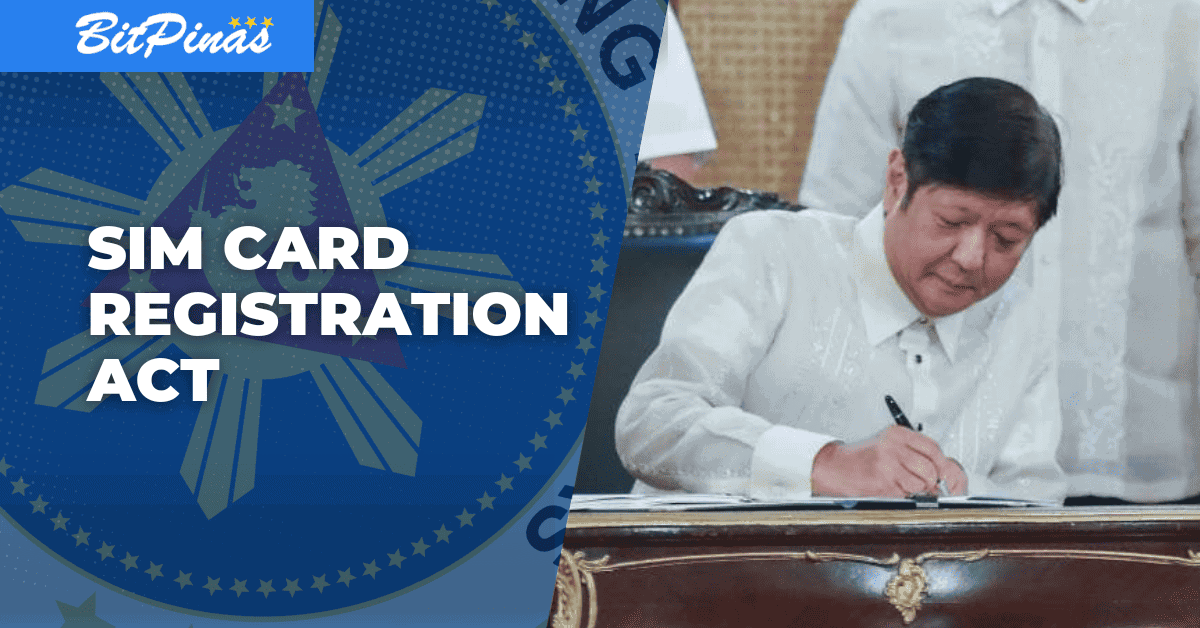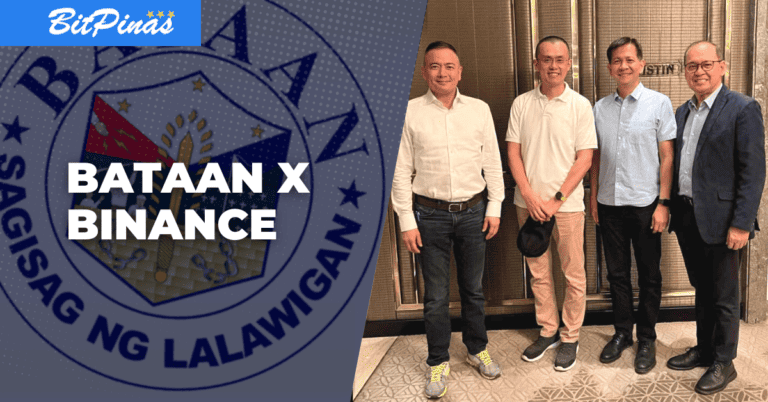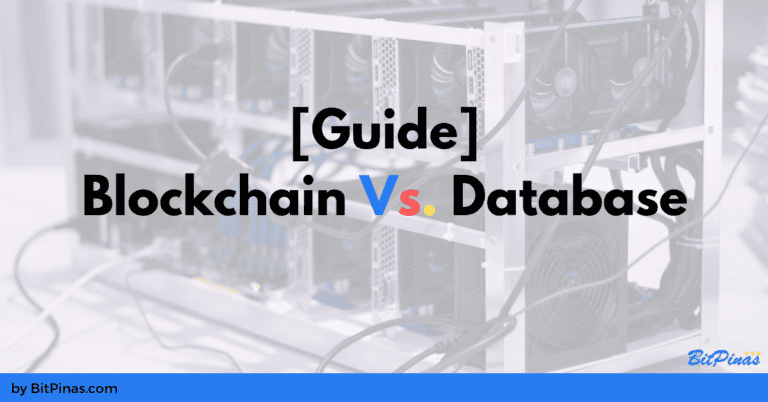Marcos Signs Sim Card Registration Law
The SIM Card Registration Act has finally signed into law by President Marcos. This bill is one of the legislative agenda of the Central Bank, which BitPinas covered. What does this law state? Read here.

Editing by Nathaniel Cajuday
President Ferdinand “Bongbong” Marcos Jr. has finally signed the Republic Act 11934 or SIM Card Registration Act into law yesterday, October 10, 2022.
The SIM Registration Act is a law requiring Filipinos to register their SIM cards along with any government-issued identification with the aim to combat fraud and lessen the widespread text scams.
“With the signing of this Act we will finally achieve what has long been overdue, an effective means of regulating the issuance of SIM cards to curb the spread of spam text messages and scams,” Marcos stated.
Sim Card Registration Act
The ceremonial signing of the President’s first law was held in Malacañang with Senate President Juan Miguel Zubiri, House Speaker Martin Romualdez, and other stakeholders as witnesses.
“I commend the legislators from the House and from the Senate for coming up with this timely and necessary law. It is the first legislative measure that successfully passed the approval of the bicameral panel of both houses in the 19th Congress,” BBM said.
Marcos added that the legislation will be “welcomed by many of our people especially now with reports of the commission of various crimes using mobile phones, including (the) proliferation of text scams and spam. Indeed with the signing of this law, we set the important tone that it is our national policy to ensure that technology shall only be used to improve our people’s lives.”
The measure, however, was formerly vetoed by Marcos’ predecessor, former president Rodrigo Duterte, for he deemed that the law would infringe on constitutionally protected rights.
Key features of Republic Act No. 11934 or the SIM Card Registration Act:
- It requires telco companies and direct sellers to ask for a valid identification document first before selling SIM cards
- Prior owners of SIM cards would be required to register with telcos within a given time period—failure to register would result in the deactivation of SIM cards.
- Upon a subpoena or order of a court, telco companies shall disclose the full name and address of SIM card owners.
- Law enforcement agencies conducting probes on crimes committed through phones may also request telecommunications entities for the information of the SIM card’s owner.
- Telecom companies are required to maintain a SIM card register of their subscribers and must submit a verified list of their authorized dealers and agents nationwide to the National Telecommunications Commission with updates every quarter of the year.
- The use of false or fictitious information, the use of fictitious identities, and the use of fraudulent documents or identifications to register a SIM Card will be dealt with by appropriate penalties.
What happens now?
Current mobile phone subscribers with prepaid SIM cards will have 180 days from the time the law takes effect to register and verify their phone numbers with their respective public telecommunications entities (PTE). Moreover, with a valid written request to the Department of Information and Communications Technology (DICT) an extension of 120 days can be given.
As for the registration process, users will be asked to fill out a form that will contain their information and present a copy of a valid government ID with a photo.
Accordingly, the data of existing postpaid subscribers will be included in the SIM Register since they have already submitted their data upon subscription.
RA 11934 vs. Text Scams
Recently, text scams have been circulating in the Philippines where Filipinos are receiving prompts with malicious links stating that they won either a brand new phone or thousands of cash. These schemes are common phishing tactics where thieves might exploit and drain your assets once you click on their sent link.
Even the Union Bank of the Philippines, Inc. (UBP) has issued an advisory to its clients about the phishing scheme being spread through text messages. (Read more: UnionBank Warns Clients Against Phishing Scam Text Messages)
Mobile wallet GCash also made its move as it transferred its transaction confirmation messages to its in-app inbox and removed all the links on its SMS and email messages for new schemes now involving their platform. (Read more: GCash Moves Transaction Confirmation Messages to App Inbox, To Remove Links on, Emails, SMS)
A new scam modus on Binance P2P also involves and utilizes fake names and a GCash mobile number. For the modus, the buyer tells the seller and indicates to the Binance system that they have already transferred the money via GCash, prompting the system to ask the buyer to release the crypto to the seller. (Read more: More FIlipinos Share Their P2P Scam Stories)
In a statement, Cybercrime Investigation and Coordinating Center (CICC) Executive Director Alexander Ramos has sent a warning to fraudsters.
“With the signing of the SIM (Card) registration law, scammers and hackers who are using this vulnerability in hiding their identities to victimize people can now be identified,” he stated.
One of the authors of the law, Senator Grace Poe, commended the signing of the bill as they “worked hard to pass the legislation anew as a crucial first step to fend off text scammers while guaranteeing utmost respect to fundamental human rights.”
Privacy Concern
While the law ultimately aims to unmask fraudsters, privacy lawyers pointed out that scammers may only use other ways to cheat people as they can simply use foreign numbers, email platforms, or mobile applications.
Jamael Jacob, a lawyer and privacy practitioner, commented on the matter in his article.
“Once they do that, all that’s left is another massive state-sanctioned database that contains millions of pieces of personal identification information. Such databases are not only expensive to maintain but become honeypots for hackers and others to exploit,” he wrote.
On the other hand, the National Privacy Commission (NPC) admitted that the institution is “fully aware” that implementation would entail a “massive collection of personal data.” So, they assured that they also discouraged using a centralized server or database, for it would pose a greater risk of a security breach.
This article is published on BitPinas: PBBM Signs Sim Card Registration Law
Disclaimer: BitPinas articles and its external content are not financial advice. The team serves to deliver independent, unbiased news to provide information for Philippine-crypto and beyond.





